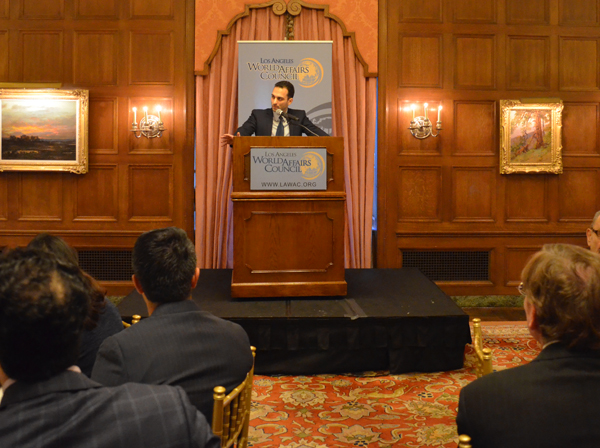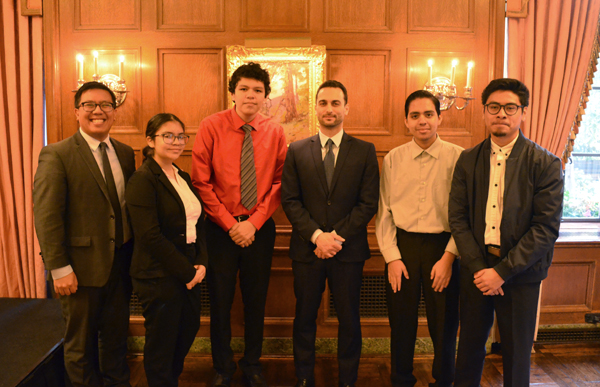
On November 5th, the Trump administration re-imposed all economic sanctions against the Islamic Republic of Iran that were previously waived under the Joint Comprehensive Plan of Action (JCPOA). “These sanctions will be the strongest in history and will force Iran to choose between ceasing its destabilizing activities or economic survival,” said David Peyman, Deputy Assistant Secretary of State for Counter Threat Finance and Sanctions, at a LAWAC breakfast on November 9th. Since President Trump withdrew the US from the JCPOA in May, the Iranian rial has decreased in value by nearly 75 percent and the re-imposed sanctions target Iran’s oil, banking and shipping industries, among others.
Iranian President Hassan Rouhani has made it clear that the regime “would break” the sanctions and claimed that Iran and the US were in an economic war. This attitude won’t bode well for Iran, according to Peyman, who promised that more sanctions will come if Iran doesn't change its behavior. “This administration uses sanctions as a scalpel, not a sledgehammer,” he said, commenting on the precision of the administration’s strategy.
Speaking about the effects of the sanctions on the Iranian people, Peyman reassured the audience that humanitarian assistance would not stop. The sanctions target the corrupt Iranian officials and not the people of Iran. “Nobody knows better than the Iranian people that this regime must swallow the bitter medicine of sanctions in order for change to happen.”
Looking toward the future, Peyman said that if Iran does agree to the 12 demands outlined by Secretary of State Mike Pompeo, there is a possibility for a permanent treaty, with the support of Congress, and full diplomatic and economic relations with Iran.

David Peyman (center) with students from Olga Mohan High School, a participant in NuclearFreeSchools.
